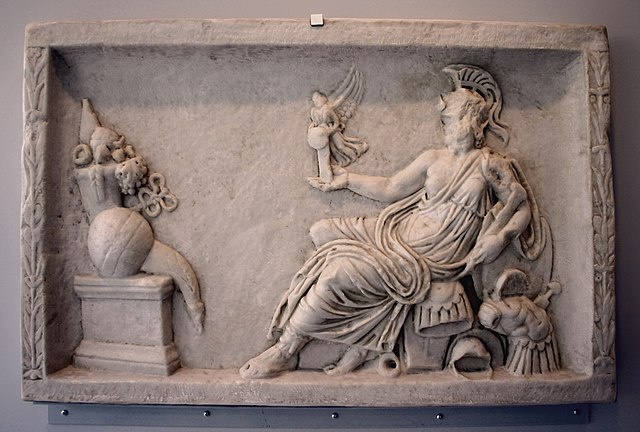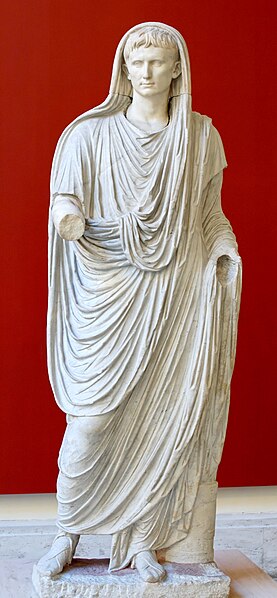Augury was a Greco-Roman religion practice of observing the behavior of birds, to receive omens. When the individual, known as the augur, read these signs, it was referred to as "taking the auspices". "Auspices" means "looking at birds". Auspex, another word for augur, can be translated to "one who looks at birds". Depending upon the birds, the auspices from the gods could be favorable or unfavorable. Sometimes politically motivated augurs would fabricate unfavorable auspices in order to delay certain state functions, such as elections. Pliny the Elder attributes the invention of auspicy to Tiresias the seer of Thebes.
Roman augur with lituus, an augural wand, symbol of augurs and augury.
Religion in ancient Rome consisted of varying imperial and provincial religious practices, which were followed both by the people of Rome as well as those who were brought under its rule.
Defaced Dea Roma holding Victory and regarding an altar with a cornucopia and other offerings, copy of a relief panel from an altar or statue base
Augustus as Pontifex Maximus (Via Labicana Augustus)
Cybele enthroned, with lion, cornucopia and Mural crown. Roman marble, c. 50 AD (Getty Museum)
Relief panel from an altar to Venus and Mars depicting Romulus and Remus suckling the she-wolf, and gods representing Roman topography such as the Tiber and Palatine Hill





